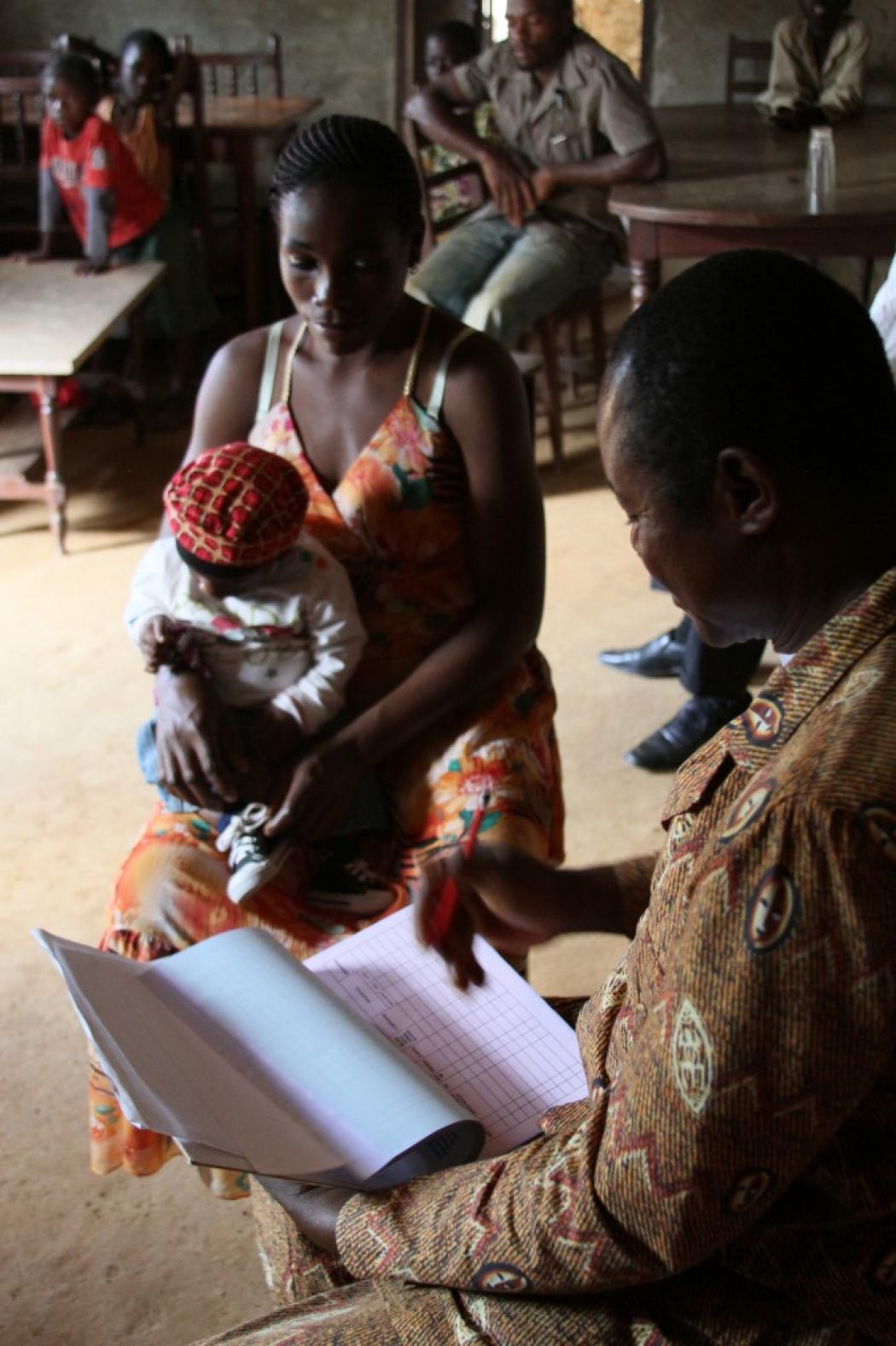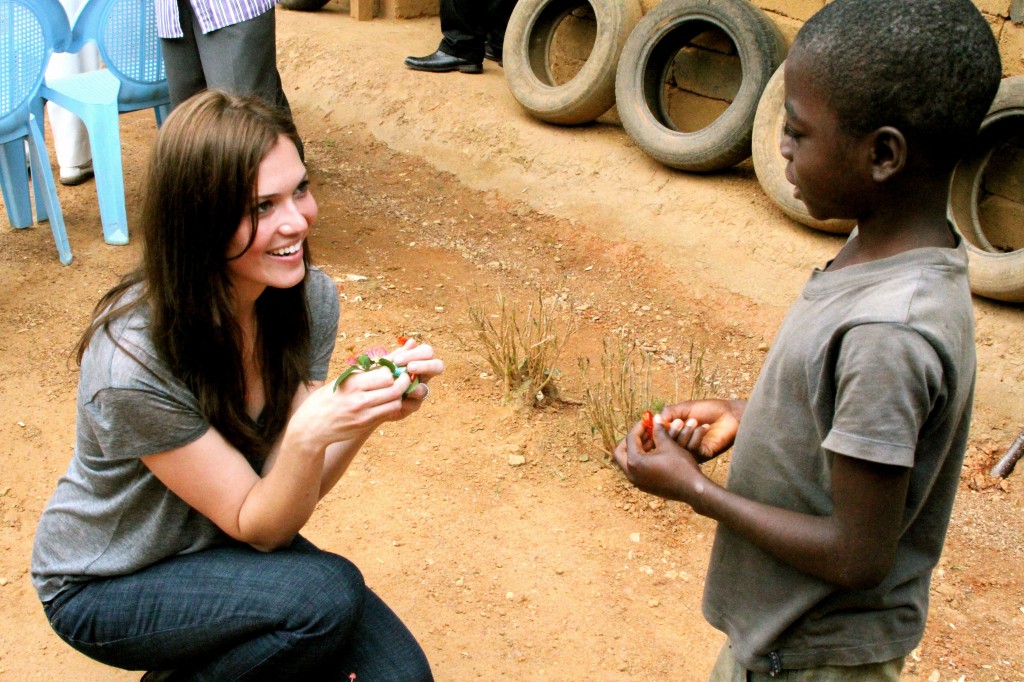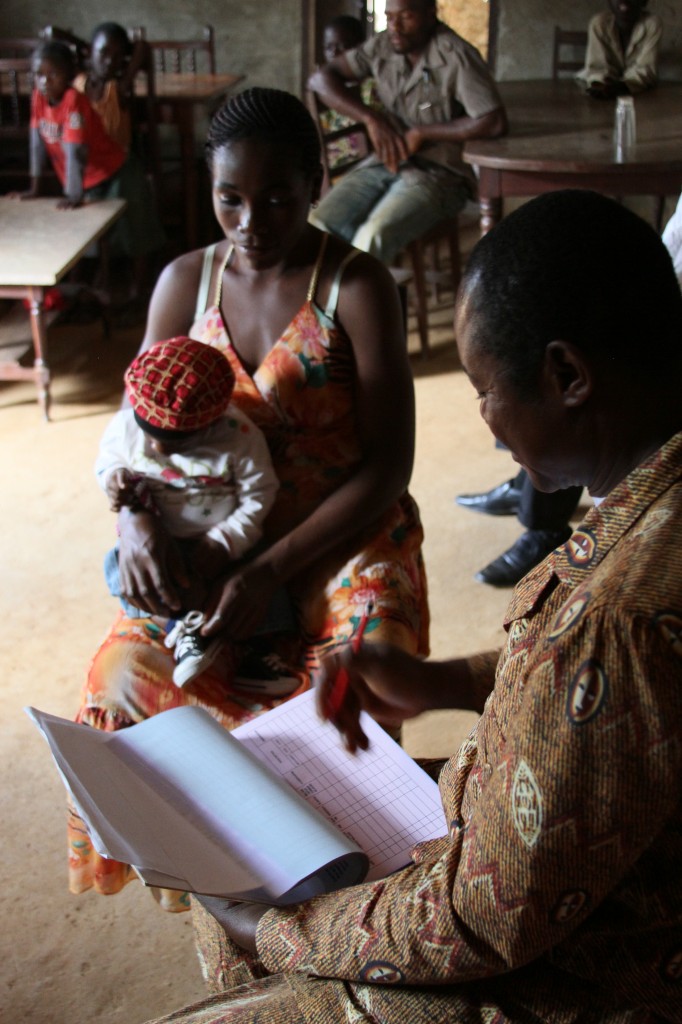Committing to Improving Health: My Visit with Frontline Health Workers in Cameroon

By Mandy Moore, Global Ambassador, PSI
Two years ago I traveled to Cameroon with global health organization, PSI. We set out from the capital city of Yaoundé and traveled by car over dusty, unpaved roads to the small village of Ebanga.
Driving along the bumpy road, I thought about the millions of parents in developing countries who wake up in the middle of the night to find that one of their children is ill with a life-threatening fever. To get treatment many have to carry their children miles by foot to the nearest health center – all the while knowing they may not be able to afford treatment once they arrive.
This is why I was here in Ebanga; I wanted to see firsthand a program that could change that reality for thousands of Cameroonians, allowing them to receive care in their communities by a trusted health worker.
When we arrived I met Atangana Manga, a community health worker in the village. Atangana received training from Cameroon’s Ministry of Public Health and PSI’s local affiliate, ACMS, to administer timely, World Health Organization-approved treatment for early cases of malaria and diarrhea to children in Ebanga.
We sat down with Atangana to learn more about community health work. A proud man, he spoke with great eloquence. In another life, Atangana could have been a stage actor, a preacher or a motivational speaker. He had us enraptured with his explanation of his work. I could see why he was so effective.
Atangana explained that he was a volunteer. He made his living as a farmer and people came to his home at all hours of the day and night for help–sometimes to the chagrin of his wife. Nevertheless, he served them with great pride.
Later that afternoon, I visited a district health clinic where doctors and nurses told me that they rarely saw severe cases of malaria and diarrhea anymore, thanks to the timely treatment and advice provided by Atangana and other frontline health workers in surrounding villages.
Not only did I leave Cameroon deeply affected by what I saw in Ebanga, but I remain in awe of the impact that the program has had. At the time of my visit, twice as many mothers had received antimalarial treatment for their children and more than 57% of children with fevers had been successfully treated in the Cameroonian communities where the program was piloted. For diarrhea cases, 60% of children received oral rehydration salts, compared with 7% in non-pilot communities.
Imagine if these statistics were applied to every country and every disease in Africa – and around the world?
We have the chance to make that happen.
Next week world leaders will convene in New York City to discuss progress on the Millennium Development Goals, and in November they will travel to Brazil for the 3rd Global Forum on Human Resources for Health. The world has made incredible progress since these targets were set in 2000, but we have a bold vision, and to achieve it we need to address the critical shortage of health workers, like Atangana, who serve on the frontlines of health care.
As these leaders meet to discuss progress and challenges, the health workforce needs to be top of mind. Now is the time for the United States and other governments to make firm commitments to build the health workforce and ensure access to health care for millions of people around the world.


